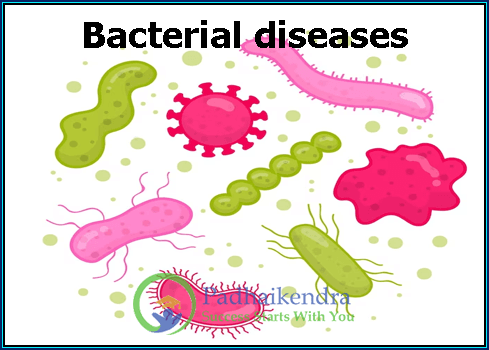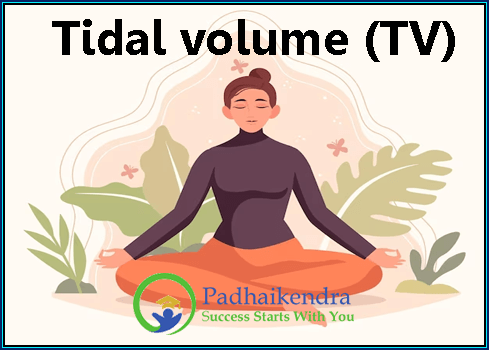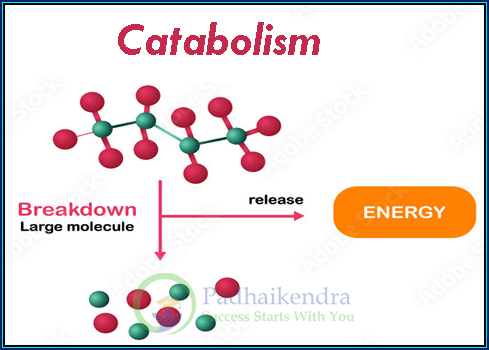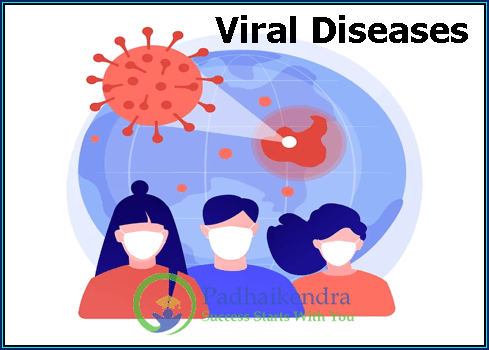What are Vitamins?
Vitamins – you’ve probably heard the word thrown around when people talk about eating healthy, but what are they exactly? Vitamins are like the tiny superheroes in our bodies. They are organic compounds that play crucial roles in keeping us healthy and functioning at our best. They don’t provide energy like carbs, fats, and proteins, but they are vital for our overall well-being.
What makes vitamins so unique is that our bodies can’t produce them in sufficient amounts, or sometimes not at all. That’s why we need to get them from our diet. Just like your favorite snacks, vitamins come in various types, each with its own superpowers.
Importance of Vitamins in Nutrition
Now that we know what vitamins are, let’s dive into why they are essential in nutrition. Think of vitamins as the building blocks and maintenance crew for your body. They help with everything from repairing tissues to warding off diseases. Here’s why they are a big deal:
Health Boosters
Vitamins help your body perform all sorts of daily tasks. Vitamin C, for example, helps your body heal wounds and fights infections. It’s like a shield that keeps you safe from nasty germs.
Energy Wizards
Some vitamins, like B vitamins, are like magic wands when it comes to energy. They help convert the food you eat into energy your body can use. Without them, you’d feel as sluggish as a sloth on a hot day.
Bone Builders
Vitamins are also architects for your bones. Vitamin D helps your body absorb calcium, the stuff that makes your bones strong. Without it, your bones could be as fragile as glass.
Good for Your Eyes
Ever heard carrots are good for your eyes? That’s thanks to vitamin A, which helps maintain good vision. It’s like having a personal spotlight for your peepers.
Skin Saviors
Vitamins E and C are like your skin’s best friends. They protect your skin from the sun’s harmful rays and keep it looking young and fresh. No need for a fancy spa day; just load up on these vitamins.
Immune System Commanders
Your immune system is like your body’s army, and vitamins are the generals. They help your immune system battle illnesses and keep you in tip-top shape.
Brain Boosters
The brain needs vitamins too! Some vitamins, like B vitamins, help your brain work its magic. They’re like the secret sauce for staying sharp and focused.
So, there you have it! Vitamins are like the unsung heroes of your body. They don’t get the spotlight like carbs, proteins, or fats, but they are just as crucial for your health. We read about the different types of vitamins, where to find them, and why you need to keep them in your diet. It’s time to get to know these little powerhouses a bit better!
Types of Vitamins
Now that we’ve got the basics down, let’s dive into the diverse world of vitamins. Just like the Avengers, vitamins come in two main teams: fat-soluble and water-soluble. Each team has its own set of heroes with unique powers. Let’s meet them!
Fat-Soluble Vitamins
- Vitamin A: Vitamin A is like the guardian of your peepers. It helps you see in low light and keeps your eyes healthy. You’ll find it in foods like carrots, sweet potatoes, and spinach.
- Vitamin D: Vitamin D is the sunshine vitamin. It helps your body absorb calcium, keeping your bones strong. So, don’t forget to catch some rays (safely) or munch on fatty fish and fortified foods.
- Vitamin E: Vitamin E is your skin’s best buddy. It’s an antioxidant that fights off damaging free radicals. Nuts, seeds, and spinach are all rich sources.
- Vitamin K : Vitamin K is your blood’s coagulation commander. It helps wounds stop bleeding and keeps your bones healthy. Leafy greens like kale and broccoli are excellent sources.
Water-Soluble Vitamins
- Vitamin C (Ascorbic Acid): Vitamin C is like your body’s repairman. It helps heal wounds, boosts your immune system, and keeps your skin looking fresh. You’ll find it in citrus fruits, strawberries, and bell peppers.
- B-Complex Vitamins: The B-Complex team is like a squad of specialized agents, each with its own mission.
-
- Vitamin B1 (Thiamine):Vitamin B1 helps convert food into energy. It’s like the engine in your car. Find it in whole grains and beans.
- Vitamin B2 (Riboflavin): Vitamin B2 is all about maintaining healthy skin and eyes. It’s like your personal skincare guru. Look for it in dairy products and green leafy veggies.
- Vitamin B3 (Niacin): Vitamin B3 is a multitasker. It helps with digestion, skin health, and nerve function. You can get it from meat, fish, and whole grains.
- Vitamin B5 (Pantothenic Acid): Vitamin B5 is the calm in the storm. It helps your body manage stress and make hormones. You’ll find it in almost all foods, so no need to stress about it.
- Vitamin B6 (Pyridoxine): Vitamin B6 is like your mood stabilizer. It helps with brain development and function. Bananas, poultry, and potatoes are good sources.
- Vitamin B7 (Biotin): Vitamin B7 is the hair and nail hero. It’s essential for healthy locks and strong nails. Eggs, nuts, and sweet potatoes have got your back.
- Vitamin B9 (Folate): Vitamin B9 is the pregnancy protector. It’s crucial for fetal development. Leafy greens, legumes, and fortified cereals are top sources.
- Vitamin B12 (Cobalamin): Vitamin B12 is your energy supplier. It keeps your nerves and blood cells healthy. Fish, meat, and dairy products are B12-rich foods.
Remember, each vitamin has its own unique powers and plays a vital role in your overall health. A balanced diet with a variety of foods will ensure you get all these superheroes on your side.
Role of Vitamins in the Body
We’ve met the vitamins and learned about their types. Now, it’s time to unveil their superpowers. These micronutrients are like the unsung heroes working behind the scenes in your body. Let’s take a closer look at how they contribute to your overall well-being:
Antioxidant Functions
Imagine vitamins as the shield that protects your cells from harm. They have antioxidant superpowers that neutralize harmful molecules called free radicals. These free radicals are like tiny troublemakers that can damage your cells and DNA. Vitamins like C and E are the knights in shining armor, defending your body against this oxidative stress.
Immune System Support
Your immune system is your body’s defense army, and vitamins are its generals. Vitamins A, C, D, and E play key roles in bolstering your immune system. They help your body recognize and fight off invaders like bacteria and viruses. Think of them as your body’s secret agents, always on guard to keep you healthy.
Energy Production
Feeling tired? Vitamins from the B-complex group are your energy boosters. They help convert the food you eat into energy that your body can use. Vitamin B12, for instance, is like a power generator for your cells, ensuring you have the energy to tackle your day.
Bone Health
Strong bones are essential for a sturdy frame. Vitamins D and K work together to keep your bones in top shape. Vitamin D helps your body absorb calcium, while vitamin K ensures that calcium is deposited where it should be—in your bones and teeth. Without these vitamins, your bones might become as brittle as dry twigs.
Skin and Hair Health
Who doesn’t want radiant skin and luscious locks? Vitamins E and C are like your personal beauty consultants. They protect your skin from the sun’s harmful rays and promote healthy hair growth. These vitamins are like the secret ingredients in your skincare routine.
Blood Clotting
When you get a cut or a scrape, your body needs to stop the bleeding quickly. Vitamin K is your blood’s coagulation commander. It ensures that your blood clots properly, preventing excessive bleeding. Without it, even a tiny cut could become a major problem.
Nervous System Function
Your brain and nerves need vitamins too. Vitamin B6, for example, is crucial for brain development and function. It helps produce neurotransmitters, which are like messengers that enable communication in your brain. So, if you want to stay sharp and focused, make sure you have your B vitamins on board.
Vision Maintenance
Last but not least, let’s talk about your eyes. Vitamin A is your eye’s best friend. It helps you see in low light, keeps your eyes moist, and plays a role in preventing night blindness. Remember those carrots your parents told you to eat for good eyesight? They’re loaded with vitamin A.
Vitamins are like the versatile actors in your body’s blockbuster movie. They play multiple roles to ensure your health and well-being. While they may not wear capes, their contributions are invaluable. To reap the benefits of these vitamin superheroes, maintain a balanced diet with a variety of foods.
Dietary Sources of Vitamins
Now that we’ve discovered the remarkable roles vitamins play in our bodies, it’s time to uncover where these tiny superheroes hide in our daily diets. Vitamins might not wear capes, but they do have their favorite hiding spots.
Natural Food Sources
Fruits and Vegetables
When it comes to vitamins, fruits and veggies are like the treasure chests. They’re packed with a variety of these micronutrients. Let’s break down the loot:
- Vitamin C: Citrus fruits like oranges, lemons, and grapefruits are bursting with vitamin C. You’ll also find it in strawberries, kiwi, and bell peppers.
- Vitamin A: Carrots, sweet potatoes, and spinach are rich in vitamin A. These foods are like a secret stash for healthy eyes.
- Vitamin K: Leafy greens like kale, spinach, and broccoli are your go-to sources for vitamin K. They’re like the guardians of your blood clotting.
Meat and Fish
If you’re a carnivore or pescatarian, you’re in luck. Animal products offer some vital vitamins:
- Vitamin B12: This energy booster is found in meat, fish, and dairy products. Beef, salmon, and eggs are on the B12-rich menu.
Dairy Products
Dairy isn’t just about strong bones; it’s a vitamin hub too:
Vitamin D: Milk, cheese, and yogurt are often fortified with vitamin D. They’re like the sunny side of your diet, especially when natural sunlight is scarce.
Grains and Legumes
Your grains and legumes are like the supportive friends in your vitamin journey:
- Vitamin B1 (Thiamine): Whole grains like brown rice and oatmeal contain this vitamin. They’re like the steady energy providers.
- Vitamin B3 (Niacin): Legumes like beans and lentils are niacin-packed superheroes. They’re your friends for digestive health.
- Vitamin B9 (Folate): Beans, lentils, and chickpeas are rich in folate. They’re like the best pals for pregnant folks.
Fortified Foods and Supplements
Sometimes, your diet might need a little boost. That’s where fortified foods and supplements come into play:
- Fortified Cereals: Many cereals are fortified with vitamins like B vitamins and vitamin D. They’re like your morning vitamin allies.
- Supplements: When your diet can’t provide enough vitamins, supplements are there to save the day. They come in various forms, from pills to gummies, and are available over the counter or with a doctor’s prescription.
Remember, a balanced diet that includes a rainbow of fruits, vegetables, lean proteins, and whole grains is your best bet for getting all the vitamins your body needs. Think of your plate as a canvas, and each food item as a different color representing a vitamin. The more colorful your plate, the more vitamins you’re likely to have on your side.
Recommended Daily Allowances (RDAs)
We’ve journeyed through the land of vitamins, explored their diverse roles, and even uncovered their secret hiding places in our diets. Now, it’s time to tackle another important aspect of this micronutrient adventure: understanding Recommended Daily Allowances (RDAs).
Understanding RDAs
What Are RDAs?
RDAs are like the roadmap guiding your vitamin intake. They tell you how much of each vitamin you need daily to stay healthy and thrive. Think of them as your daily vitamin GPS, ensuring you don’t get lost in the wilderness of vitamin deficiencies or excess.
Why Are RDAs Important?
RDAs are essential because they help prevent both deficiencies and toxicities. Without these guidelines, you might not know if you’re getting enough or overdoing it with certain vitamins. Striking the right balance is crucial for your health.
Factors Influencing RDA
Age and Gender:
RDAs aren’t one-size-fits-all. They vary depending on your age and gender. For instance, pregnant women need more of certain vitamins like folate to support fetal development, while seniors may require extra vitamin D for bone health.
Activity Level:
Your activity level also plays a role. If you’re an active individual who engages in regular exercise, you might need more vitamins, particularly the B-complex vitamins, to support energy metabolism.
Health Conditions:
Certain health conditions may affect your vitamin needs. For instance, individuals with malabsorption disorders may require higher doses of fat-soluble vitamins like A, D, E, and K.
Dietary Choices:
Your diet matters too. If you’re a vegetarian or vegan, you might need to pay extra attention to vitamin B12 intake, which is primarily found in animal products. Conversely, if you consume a highly processed diet, you might be missing out on essential vitamins found in whole foods.
Special Considerations (e.g., for Pregnant Women, Seniors)
Pregnant Women:
Pregnant women have unique vitamin needs. Folic acid (a form of vitamin B9) is especially important during pregnancy to prevent birth defects. Iron and calcium are also crucial to support the growing fetus and maintain the mother’s health.
Seniors:
As we age, our bodies may absorb vitamins less efficiently. Seniors often need more vitamin D to maintain bone health and vitamin B12 to support nerve function. Calcium and vitamin K are important for bone health as well.
Children:
Growing kids have their own set of vitamin needs. Vitamins like A and D are vital for proper growth and development. Ensuring they get a balanced diet with these vitamins is crucial for their health.
RDAs are like your personal nutrition compass, helping you stay on the right path towards optimal health. They consider factors like age, gender, activity level, and health conditions to provide personalized guidelines. Special populations like pregnant women, seniors, and children have specific requirements to ensure they get the nutrients they need. By understanding RDAs and tailoring your diet accordingly, you can embark on a journey towards a healthier and more vibrant you. Stay tuned for more insights on vitamins and how to achieve a balanced diet!
Consequences of Vitamin Deficiency
In our quest to understand vitamins and their roles, we’ve discovered the importance of these micronutrients in maintaining health. But what happens when your body doesn’t get enough of them? That’s where the consequences of vitamin deficiency come into play.
Vitamin Deficiency Diseases
What Are Vitamin Deficiency Diseases?
Vitamin deficiency diseases are like the villains in the vitamin world. They occur when your body doesn’t get the vitamins it needs to function properly. Each vitamin has its own set of deficiency-related diseases:
- Vitamin A Deficiency: This can lead to night blindness and, in severe cases, even blindness.
- Vitamin D Deficiency: It can result in weakened bones and a condition called rickets in children and osteomalacia in adults.
- Vitamin C Deficiency: Known as scurvy, it can cause fatigue, swollen gums, and skin problems.
- Vitamin B Deficiencies: These can lead to various conditions like beriberi (B1 deficiency), pellagra (B3 deficiency), and megaloblastic anemia (B12 or folate deficiency), among others.
Signs and Symptoms
How Do You Know You Have a Deficiency?
Your body communicates with you, and sometimes it sends distress signals when it’s lacking essential vitamins. Here are some common signs and symptoms to watch out for:
- Fatigue: Feeling tired all the time can be a sign of several vitamin deficiencies, including B vitamins.
- Skin Issues: Dry, scaly skin (vitamin A deficiency) or rashes (vitamin B2 deficiency) may indicate a problem.
- Mouth Problems: Cracks at the corners of your mouth (vitamin B2 deficiency) or bleeding gums (vitamin C deficiency) can be red flags.
- Muscle Weakness: Difficulty in lifting objects or climbing stairs could be due to vitamin D deficiency.
- Vision Changes: Night blindness (vitamin A deficiency) or eye twitches (vitamin B12 deficiency) are potential issues.
- Mood Changes: Feeling down or anxious may be related to vitamin D or B vitamin deficiencies.
Long-Term Health Implications
Why Worry About Deficiency in the Long Term?
Ignoring these deficiency signs and symptoms can have serious long-term consequences for your health. Here are a few:
- Osteoporosis: A long-term lack of vitamin D and calcium can lead to brittle bones, increasing the risk of fractures.
- Anemia: Iron and vitamin B12 deficiencies can cause anemia, leading to fatigue, weakness, and pale skin.
- Heart Disease: A deficiency in vitamin B6, B9 (folate), or B12 can increase the risk of heart disease by raising levels of homocysteine, a potential heart disease marker.
- Neurological Issues: Vitamin B12 deficiency can damage nerves, leading to numbness, tingling, and even memory problems.
Risks of Vitamin Overdose
We’ve journeyed through the world of vitamins, learned about their superhero roles, and understood the consequences of their absence. But here’s the flip side: what happens when you get too much of a good thing?
Toxicity and Its Effects
What Is Vitamin Toxicity?
Vitamin toxicity, simply put, is when you have an excessive amount of a particular vitamin in your system. It’s like having too many chefs in the kitchen; things can go awry.
The Effects of Vitamin Toxicity:
The consequences of vitamin toxicity can vary depending on the vitamin in question:
- Fat-Soluble Vitamins: Vitamins A, D, E, and K are fat-soluble, meaning they can accumulate in your body’s fat stores. Excessive intake of these vitamins can lead to a range of symptoms, including nausea, diarrhea, and, in severe cases, organ damage.
- Water-Soluble Vitamins: Vitamins like C and B-complex vitamins are water-soluble, which means your body doesn’t store excess amounts. However, extremely high doses of water-soluble vitamins can still cause problems. For instance, excessive vitamin C intake can lead to digestive issues and kidney stones.
Tolerable Upper Intake Levels (ULs)
What Are Tolerable Upper Intake Levels (ULs)?
To prevent vitamin toxicity, health experts have established Tolerable Upper Intake Levels (ULs) for various vitamins. Think of ULs as the safety net that keeps you from crossing the line into toxicity. These levels represent the maximum amount of a vitamin you can safely consume daily without risking harm.
Why Are ULs Important?
ULs are essential to protect your health. They take into account potential risks associated with excessive vitamin intake, considering factors like age, sex, and life stage. They serve as a cautionary guide, ensuring you stay within safe limits.
For example, the UL for vitamin D in adults is 4,000 International Units (IU) per day. This means that exceeding this amount could lead to vitamin D toxicity, potentially causing symptoms like nausea, vomiting, and kidney problems.
While vitamins are essential for your health, it’s vital to recognize that more isn’t always better. The risks of vitamin overdose, or toxicity, can have serious consequences. Tolerable Upper Intake Levels (ULs) provide a safety net to help you avoid overdoing it. So, as you journey through the world of vitamins, remember to strike a balance and stay within recommended intake levels to reap their benefits without falling into the pitfalls of overdose.
How to Balance Your Vitamin Intake
In our vitamin journey, we’ve uncovered the vital roles these micronutrients play in our health, delved into their dietary sources, and explored the potential risks of overdose. Now, it’s time to unravel the art of balancing your vitamin intake—a crucial step to harness the benefits of vitamins while avoiding the pitfalls.
Importance of a Balanced Diet
Why Is a Balanced Diet Vital?
A balanced diet is like the conductor of a symphony orchestra, harmonizing all the essential nutrients, including vitamins, to create a masterpiece of health. Here’s why it matters:
- Optimal Health: A balanced diet provides your body with all the vitamins it needs to function at its best. It’s like fueling your car with the right type of gasoline—it runs smoother and lasts longer.
- Preventing Deficiency and Overdose: Striking the right balance ensures you get enough vitamins without going overboard. This reduces the risk of both deficiency-related diseases and vitamin toxicity.
- Overall Well-Being: A balanced diet doesn’t just benefit your physical health but also your mental well-being. It can boost your mood, enhance your energy levels, and improve your overall quality of life.
Dietary Guidelines
How Can You Achieve a Balanced Diet?
Achieving a balanced diet involves making informed choices about the foods you consume. Here are some dietary guidelines to help you maintain that delicate equilibrium:
- Variety Is Key: Think of your plate as a canvas, and each food group as a different color. The more colorful your plate, the more likely you are to get a wide range of vitamins. Incorporate fruits, vegetables, lean proteins, whole grains, and dairy into your meals.
- Portion Control: Even the healthiest foods can become problematic when consumed in excess. Pay attention to portion sizes to avoid excessive calorie and nutrient intake.
- Mindful Eating: Slow down and savor your meals. Eating mindfully can help you recognize hunger and fullness cues, preventing overeating.
- Limit Processed Foods: Highly processed foods often lack essential nutrients and may contain unhealthy additives. Try to minimize their presence in your diet.
- Stay Hydrated: Water is essential for nutrient absorption and overall health. Make sure you’re staying adequately hydrated throughout the day.
Seeking Professional Advice
When in Doubt, Consult a Pro:
Sometimes, balancing your vitamin intake might require expert guidance. Here’s when seeking professional advice becomes essential:
- Special Dietary Needs: If you have dietary restrictions, allergies, or specific health conditions, consulting a registered dietitian or nutritionist can help you tailor your diet to meet your unique needs.
- Supplement Use: Before diving into a supplement regimen, it’s wise to consult a healthcare professional. They can assess whether you truly need supplements and recommend appropriate dosages.
- Chronic Health Conditions: Certain medical conditions can affect nutrient absorption and metabolism. If you have a chronic health condition, such as celiac disease or Crohn’s disease, a healthcare provider can guide you on managing your nutrient intake.
- Pregnancy and Lactation: Expecting or nursing mothers have increased nutrient requirements. Consulting a healthcare provider or prenatal nutrition specialist is crucial during these periods.
Conclusion
In our exploration of the world of vitamins, we’ve ventured through the basics of what vitamins are and why they’re essential. We’ve met these microscopic superheroes, learning about their diverse roles in our bodies, and the potential consequences when they’re missing. We’ve also uncovered the risks of overindulgence and the importance of striking the right balance in our diet.
As we wrap up our vitamin adventure, remember that vitamins are your silent allies, working diligently behind the scenes to keep you healthy and thriving. They’re not magical pills that can fix everything, but they play a crucial role in your overall well-being.





